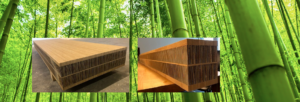lightweight composites based on greenhouse gas binding materials will replace concrete and cement
NATURE BASED SOLUTION (NBS) FOR CARBON CAPTURE AND STORAGE (CCS)
by
CARBON SEQUESTRAITION through GLOBAL BAMBOO AFFORESTATION
CARBON CAPTURE AND STORAGE (CCS) through BAMBOOCELL-BUILDINGS
NEW BUILDING MATERIALS through COMPOSITES MADE WITH BAMBOO AN PAPER
GREEN ENERGY from USING BIOMASS AT THE END OF THE LIFE CYCLE
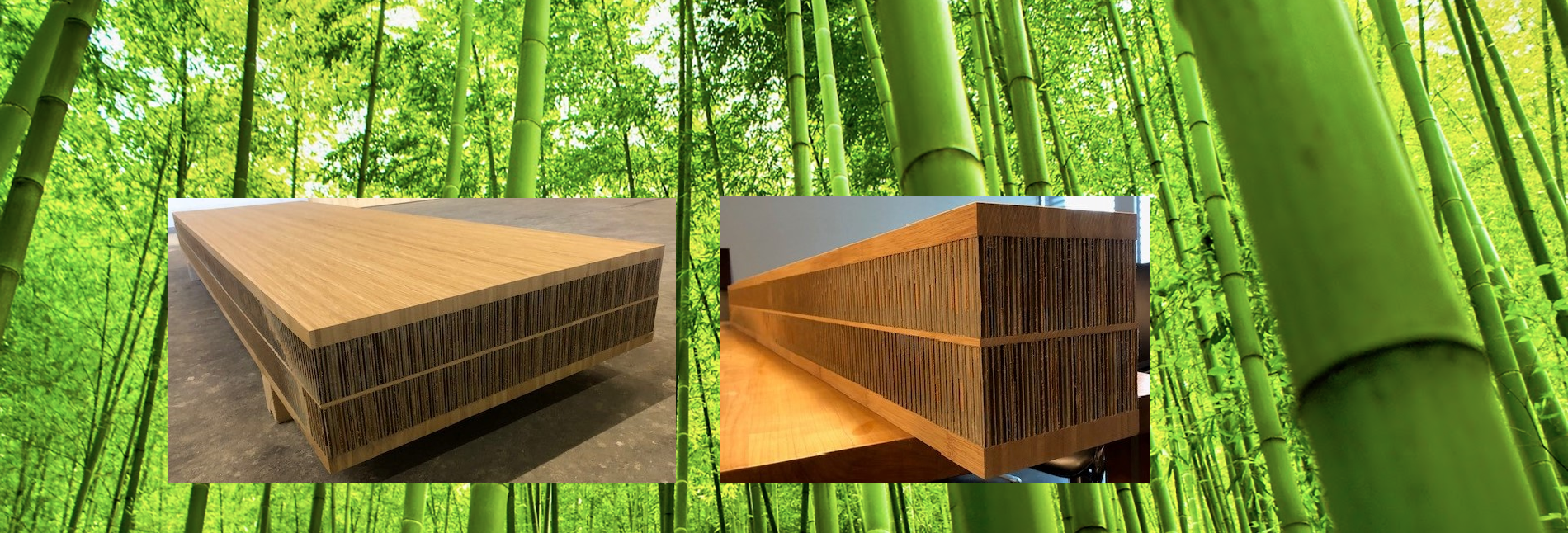
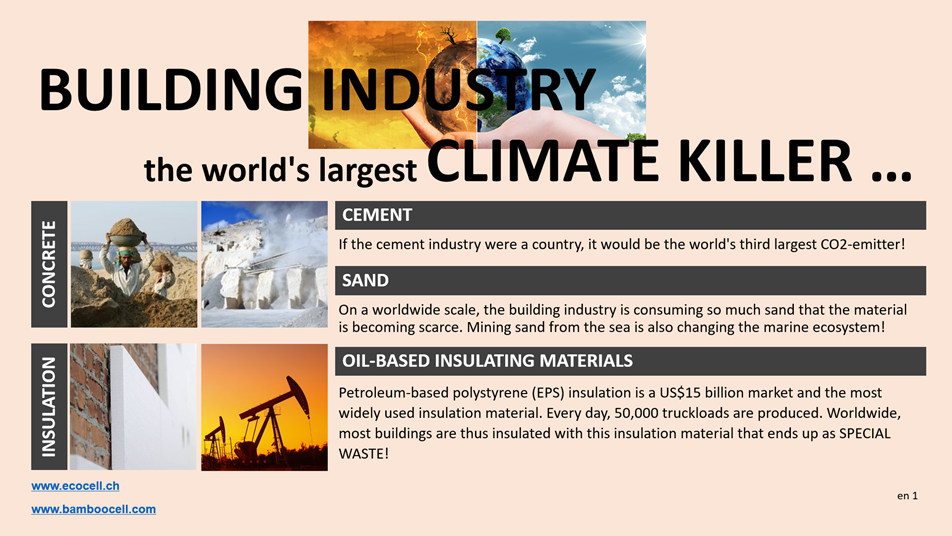


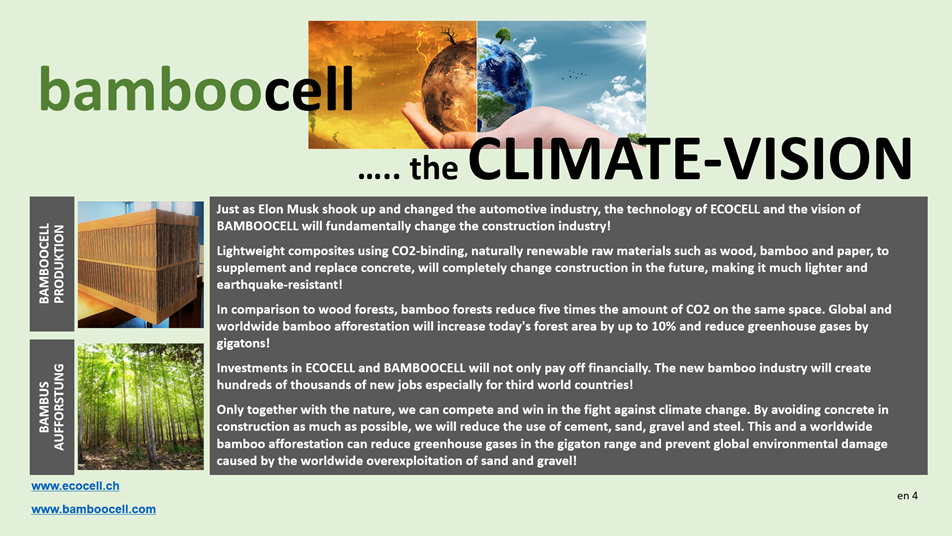
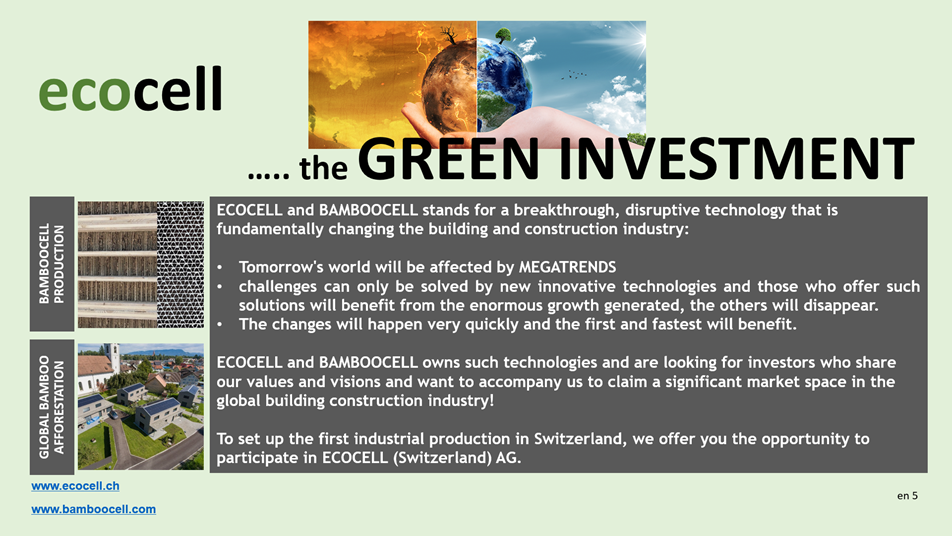
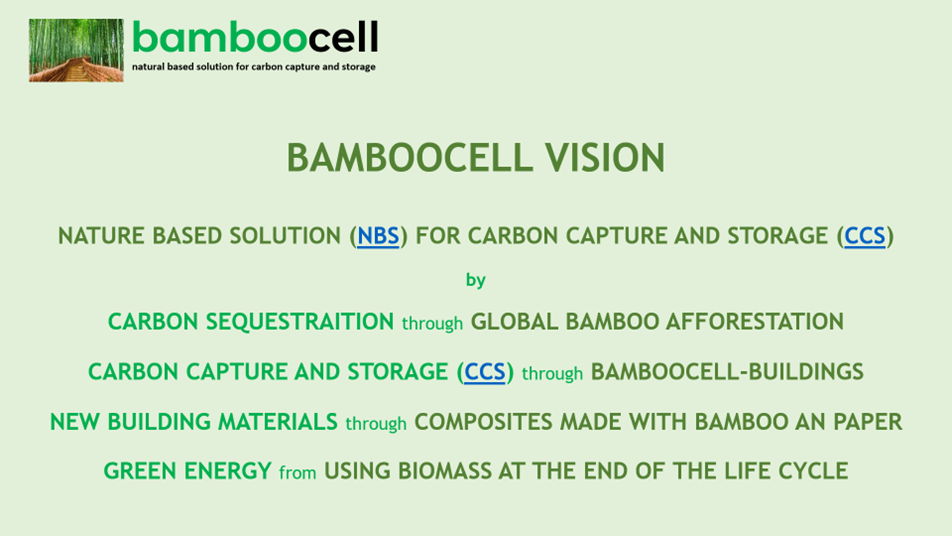

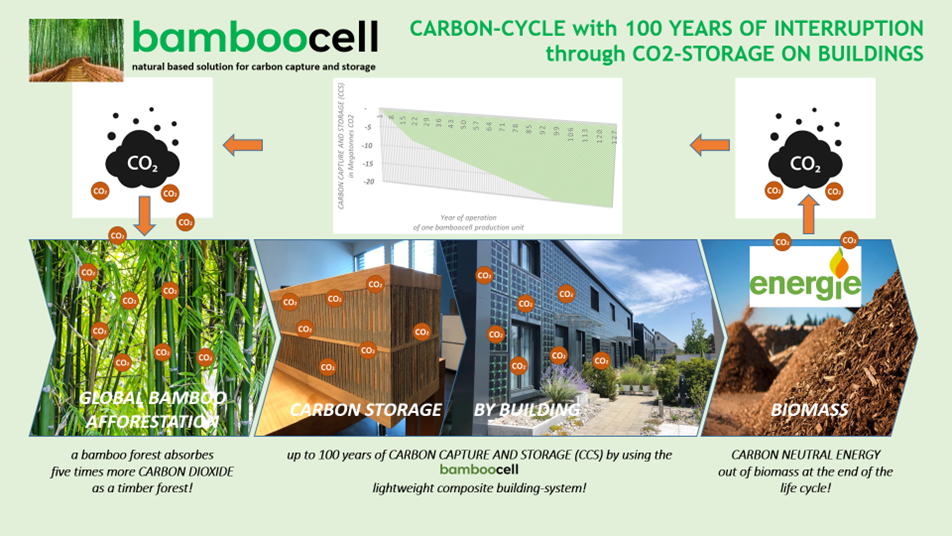
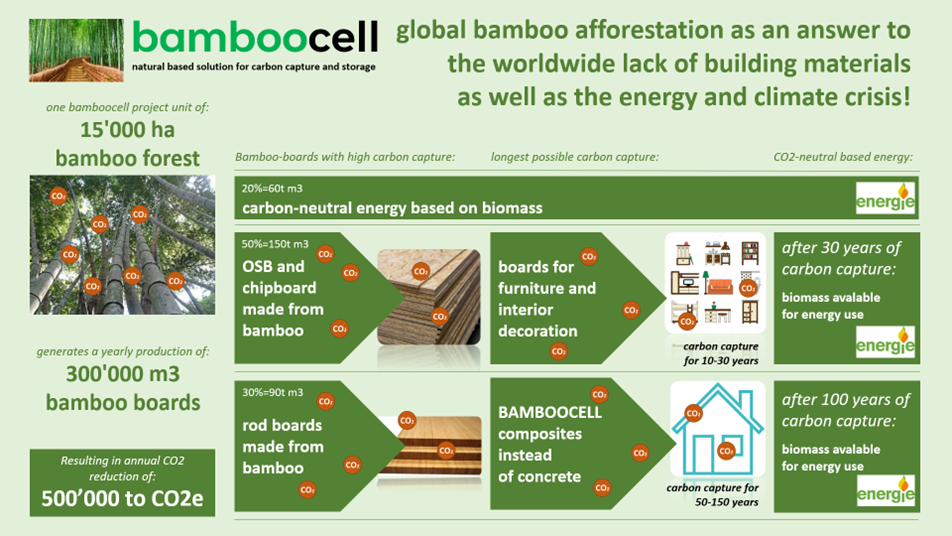
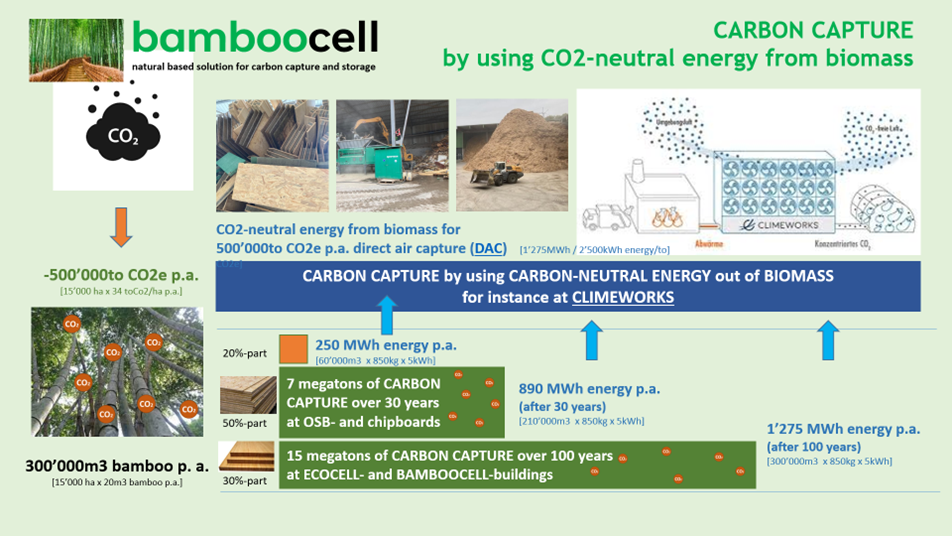

Unfortunately we missed the deadline for the first prizing of @XPRIZE, but we are working hard on our #vision of #bamboocell. The goal is the annual elimination of one million tons of #greenhousegases by #financing and #implementing the first #bamboocell #project!

#ecocell and #bamboocell as #gamechanger for the #building #industry!

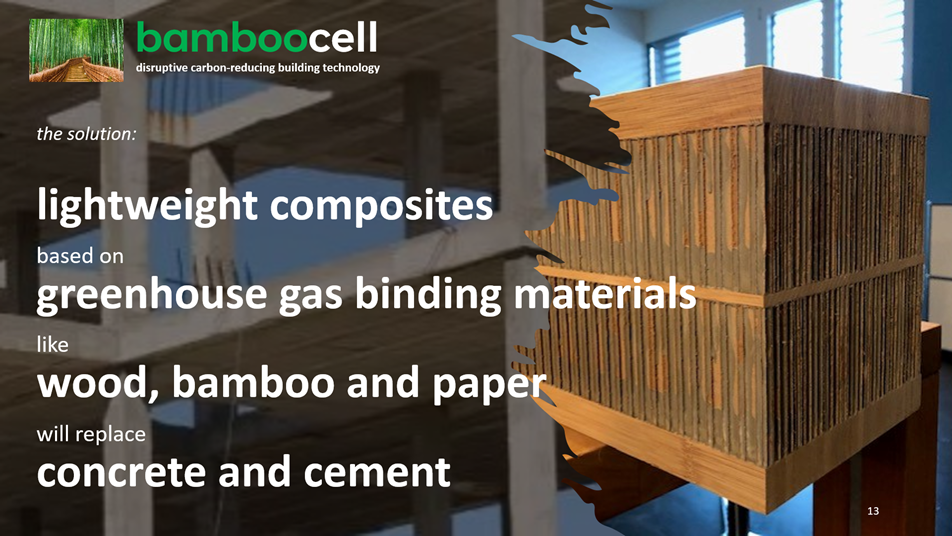
#BAMBOOCELL on @XPRIZE
Unforgently we missed the deadline for the first milestone at @xprize but we are working to reach the goal for a yearly binding of one million tons of #CO2 by releasing and financing the first #bamboocell project!

The first CEILING-, WALL- AND ROOF-ELEMENTS in BAMBOO are born!
BAMBOO-COMPOSIT-BUILDING-MODULE
is a composite material with lower and upper boards of bamboo and honeycomb-structure, made of corrugated cardboard out of 100% recycled paper!
The BAMBOO-ELEMENTS allow free ceiling spans of more than 6.10m (over 20 feet!)
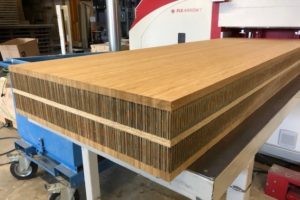
2-part BAMBOO-ELEMENT with an in-between layer of 15mm OSB!
24.12.2020
the new domain
www.bamboocell.com
is protected!

2-part BAMBOO-ELEMENT with lower and upper boards of 19mm bamboo and for the first time also an middle layer of a 4mm thick bamboo board!
Reasons for ECOCELL to switch from wood to bamboo
There are many sustainable reasons for switching from wood to bamboo.
Bamboo is a fast renewable material, belongs in botany to the group of sweet grasses, grows four times faster than wood, binds four times more CO2 in the same time than wood and produces at the same time a multiple of oxygen.
Due to its distinctive root system and its enormous growth, the bamboo plant is able to store more carbon dioxide than any other plant.
In special silicate cells, the carbon is even permanently enclosed and thus completely isolated from the atmosphere.
The greenhouse gas reduction of the bamboo plant is exemplary and has an important influence on the CO2 balance.
Already after five years, fully grown bamboo trunks can be cut without decimating the forest, because bamboo does not die after cutting.
Bamboo can be compared to hardwood, but has a much higher e-modulus than wood, which leads to enormous static properties and allows larger free ceiling spans in lightweight composite materials such as the ECOCELL–FAST-BAUILDING-SYSTEM.
Through the targeted planting of bamboo, the CO2 content on earth can be reduced relatively quickly in a natural way, which means an important element in the fight against climate change, important to counteract the deforestation of tropical forests in Brazil.
Another plus point is that bamboo is stable and resistant to environmental influences. Therefore, no harmful pesticides or fertilizers need to be used during cultivation. Artificial irrigation is also usually not necessary. In addition, cultivation is good for the soil, as the branched root systems help to erode or reduce soil erosion.
Bamboo is now also planted in countries such as Ethiopia.
The fast-growing stands are intended to push back the spreading desert.
With positive side effects: Cultivation creates new jobs, can serve as an alternative to deforestation of tropical tree stands and has the potential to promote the development of these countries.
Despite long transport routes and the partly intransparent trade structures, bamboo is a raw material with a lot of potential.
Its cultivation promises high yields with low land and water consumption. The environmental impact of bamboo production is comparatively low and the flexible material properties of the raw material make it a real alternative to plastic, wood and the like.
Bamboo in the fight against drought & poverty!
This frugality of bamboo and its positive properties on soil erosion have led to bamboo now being planted in countries like Ethiopia. The fast-growing plant is said to help push back the rapidly spreading desert. In doing so, the bamboo plants offer locals a sustainable alternative to clearing the highly endangered rainforest, creating new economic potential in these regions.
